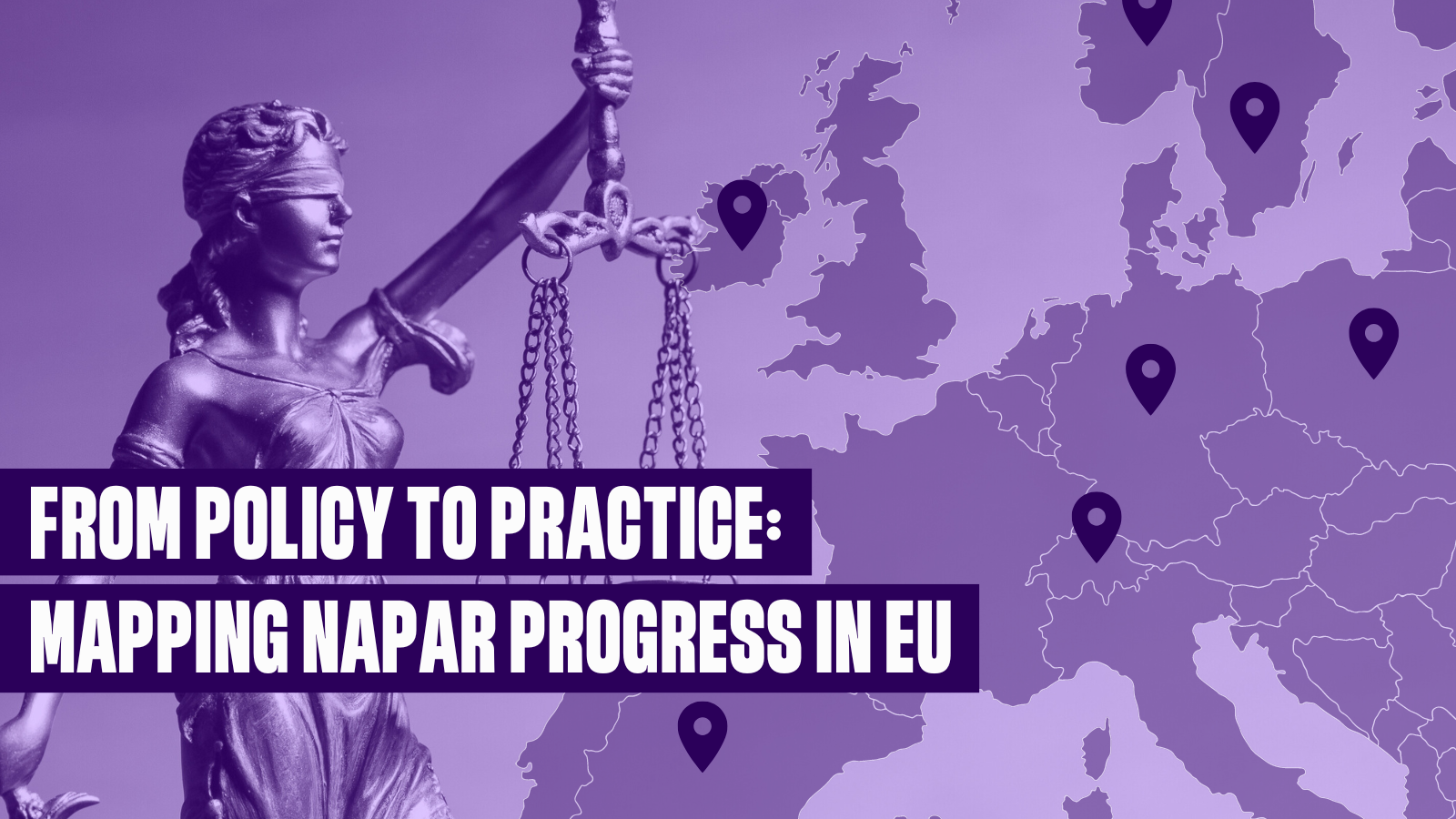
Anti-Racism Map: Mapping National Anti-Racism Plans Across the EU
The interactive ENAR Anti-Racism Map aims to answer one question: Are the promises etched in the EU Anti-racism Action Plan becoming a tangible reality across the Member States?
EU Anti-Racism Action Plan
Following widespread public mobilisation of the Black Lives Matter and anti-racism movement worldwide demanding racial equality and justice, and longstanding calls from anti-racist organisations for EU action to tackle racism through a comprehensive strategy, the European Commission published an EU Anti-racism Action Plan (2020-2025) in September 2020.
This plan represented a ground-breaking initiative for racial equality and justice in Europe. For the first time, the EU explicitly acknowledged the existence of structural, institutional and historical dimensions of racism in Europe and the need to address them through wide-ranging, proactive policies. This was an important shift from the previous limited focus on combating racial discrimination by individuals.
Following the adoption, EU member states were called upon to adopt national action plans against racism (NAPARs) by the end of 2022.
Our interactive Anti-Racism Map allows you to explore how well these countries are holding up their end of the bargain. The Anti-Racism Map uses data collected in March 2023.
Anti-Racism Map: Mapping National Anti-Racism Efforts in Europe
- Select a category
- Adoption
- Systemic and Intersectional Approach
- Equality Data Collection
- Institutional Participatory Mechanisms
- Resource Allocation
- Civil Society Coalition
- Overall
ANTI-RACISM MAP
Delve into the implementation of national action plans against racism as you select one of the six categories. In each category, click on the individual country for a detailed score, description, and additional information.Switch to the full-screen view for the best user experience.
Learn more about our scores
Our evaluation framework consists of six key metrics. We believe that together, these signal the progress of European countries in combatting racism on the national level. Click and expand each metric to discover exactly what our researchers looked at.
National Action Plan Against Racism (NAPAR) Adoption
Is there a comprehensive publicly-available national plan adopted by the government and parliament?
Systemic and Intersectional Approach
How well do the policies address systemic (structural, historical, and institutional) racism and intersecting oppressions?
Equality Data Collection
Is the equality data on discrimination collected in a harmonised and disaggregated way?
Institutional Participatory Mechanisms
Is a permanent participatory structure involving civil society representatives (including from racialised groups) in the design, implementation, and monitoring of anti-racism policies? Does it opearate based on clear terms of reference? Do the representatives meet regularly?
Resource Allocation
Is there a detailed and realistic budget earmarked to implement anti-racism policies? Does it include significant costs for staff and an independent monitoring mechanism?
Civil Society Coalition
Does the country have a coalition of diverse CSOs representing different racialised groups, including those at the intersections of discrimination. Is the coalition structured and independent from the government? Does it have a clear coordination team, terms of reference and more than three meetings per year?
Country Overview
| Country | NAPAR Adoption | Systemic and Intersectional Approach | Equality Data Collection | Institutional Participatory Mechanisms | Resource Allocation | Civil Society Coalition | Total |
|---|---|---|---|---|---|---|---|
| Austria | – | – – | + | – – | – | – | 5/20 |
| Germany | +++ | ++ | ++ | ++ | ++ | + | 18/20 |
| Finland | ++ | ++ | ++ | ++ | + | – | 15/20 |
| Ireland | + | + | + | – | – | – | 9/20 |
| Poland | ++ | – | – | – – | – | – | 7/20 |
| Spain | +++ | ++ | ++ | ++ | ++ | ++ | 19/20 |
| Sweden | +++ | ++ | ++ | + | ++ | + | 16/20 |
The Anti-Racism Map is based on the data available in March 2023. The research was conducted for the European Network Against Racism (ENAR) by several researchers working in their respective national contexts. Detailed information about the researchers is available on country pages. Want to know more about the project? Reach out!




